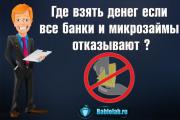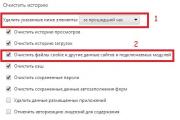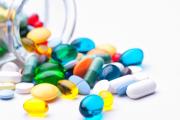What to do if your heart rate is high
 Often the heart beats faster, we hear “hammers in the head”, we feel an acceleration of the pulse and trembling in all limbs at rest. Such conditions are often accompanied by a feeling of anxiety, confusion, etc.
Often the heart beats faster, we hear “hammers in the head”, we feel an acceleration of the pulse and trembling in all limbs at rest. Such conditions are often accompanied by a feeling of anxiety, confusion, etc.
All this can happen due to a high heart rate. That is, in medical terms, an acceleration of the heart rate (HR). However, pulse and heart rate are not always synonymous.
Terminology used in relation to pulse
Classification:
- Pulse rate is the number of pulse beats felt in 60 seconds. The pulse can be felt in large arterial vessels.
- Rhythm is the regularity of blood beating against the walls of blood vessels.
- Good pulse audibility. Sometimes there are problems with shock filling. If the amount of blood is small and the walls contract weakly, then there may be insufficient cardiac activity.
- The pulse is too tense, which is reflected by the need to make an effort to clearly monitor the beat frequency. Sometimes the blood flow pressure is too high and the pulse is felt directly under the fingertips.
- Height - this characteristic reflects the level of vibrations of the artery walls during diagnosis. This characteristic makes it possible to diagnose diseases of the heart muscle and its valves.
Let's now talk about what to do if the pulse is really objectively high. By the definition of “high heart rate” we mean a heart rate that is more than normal.
Symptoms of increased heart rate
The main symptom of a high heart rate in a person is an increase in the number of heart beats per minute. The norm is 70–80 beats per minute. Indicators above this value are considered signs of a high heart rate.
If this indicator exceeds 100 beats per minute, then this is classified in medicine as a disease - tachycardia. Such a disease occurs because a person’s heart, for some reason, stops pumping blood normally in the body. As a result, a high pulse appears, which becomes higher than normal.
If tachycardia is not treated in time, more serious health problems may arise in the future. And the main complication of tachycardia is a sharp decrease in blood circulation in the human brain. Such a violation of cerebral circulation can cause a very serious disease - stroke.
Against the background of tachycardia, diseases such as:
- asthma,
- arrhythmic shock,
- acute ventricular failure.
Each of these diseases is very serious, so regular sudden increases in heart rate should never be ignored. The sooner a person who discovers tachycardia consults a specialist, the lower the risk of complications will be and the causes of its occurrence will be removed.
What heart rate standards exist and how to measure them at home
The pulse reflects the stability of all body systems, as there are physiological explanations for this. On average, a normal heart rate for an adult is 60-90 beats per minute. Children show higher values. The pulse rate can vary depending on the measurement methods, the condition of the subject, the position of the patient, etc. An interesting fact, but the pulse rate is also affected by the time of day at which the measurement is taken. In the morning the pulse is less frequent, and in the evening it becomes more frequent.
For reliable measurements, studies should be carried out during the day, at rest, and the pulse should be measured for a full minute, because with arrhythmia, the pulse can change rhythm every 10-20 seconds.
Why does the heart rate increase?
Increased heart rate is a problem for pensioners. This is explained by the following reasons:
- various malfunctions occurring in the heart and blood vessels;
- regular stress, depression, which is observed in the patient;
- if an acute disease has occurred in the human body;
- an increase in heart rate is caused by taking certain medications;
- some changes in the functioning of the thyroid gland;
- too much regular stress on the body (constant lifting of weights, etc.) or accumulated fatigue;
- when a person for some reason has lost too much fluid and dehydration occurs;
- excessive food consumption.
All the reasons listed above can be a reason for an increase in heart rate, each individually and collectively.
Diagnosis of tachycardia
Usually, tachycardia can be diagnosed using a regular tonometer or by simple palpation of the artery located on the wrist. In this case, the heart rate is counted for half a minute, then the result is simply doubled. This is how it is very simple to measure the pulse; any adult family member can check whether he has tachycardia or not.
By regularly measuring your blood pressure and pulse at home, a person should pay attention to a spontaneous and unfounded increase in heart rate. With any increase in pulse above normal, if the patient feels unwell, the question arises, what should his family members do?
What to do if your heart rate is elevated?
At home, if your heart rate is high, you should not panic. Drink water, rest for 15-20 minutes in a horizontal position. But if the pulse does not normalize and painful sensations appear in the abdomen or sternum, consciousness becomes clouded and the ability to navigate worsens, you should immediately call an ambulance. Because complications are possible.
If it is not known why the pulse has increased, you can take sedatives of plant origin - motherwort, valerian, mint. Perhaps Validol, Valocordin, Corvaltab will help. It is important to open the air supply, measure the pressure, and also call an ambulance if the condition does not improve or gets worse within a quarter of an hour.
Treatment of the disease
Treatment of tachycardia with drugs must be carried out in combination with treatment of the underlying disease. Usually the doctor prescribes special drug therapy based on the gentle use of drugs. First of all, all medications that can lead to an increase in heart rate are canceled - these are drugs containing adrenaline, caffeine, etc.
To treat tachycardia, various drugs that have a sedative effect are usually prescribed: such as Corvalol or Valocordin (and other similar tinctures). With regular tachycardia, the patient should completely stop drinking alcohol, exclude strong tea and coffee from the diet, replacing them with coffee drinks made from barley or chicory. Nicotine is also a possible cause of increased heart rate.
In some cases, stronger drugs are used to treat tachycardia - beta blockers or cardiac glycosides. But such drugs are prescribed only by the attending physician. Tachycardia does not require hospitalization; a high pulse can be effectively returned to normal at home.
If a person is diagnosed with tachycardia, he will have to radically change his lifestyle and diet. At home, active sports and other regular excessive physical activity and stressful situations are contraindicated for such a patient. What else can a person not do if his pulse is higher than normal?
Such a patient also needs to reconsider his diet. All alcoholic beverages should be completely removed from the menu and the consumption of spicy, salty and pickled foods should be limited. In addition, you should not eat baked goods, sweets and other flour dishes, which contribute to the formation of cholesterol plaques on the walls of blood vessels. It is very good to relieve a rapid pulse at home with the help of freshly brewed green tea with the addition of regular milk.
For patients with tachycardia, if the pulse is higher than normal, you can do light morning exercises, walking in the fresh air is useful. Such procedures improve the functioning of the heart muscle and reduce high heart rate.
First aid at home
A high heart rate can be normalized at home:
- Take a deep breath, strain to exhale and cough.
- Click on the eyeballs.
- Press on a point in the area of the pit on the left hand where it articulates with the hand, carry out the procedure for a minute.
- Massage the side of the neck, where the carotid arteries are located;
- If there are medications, Anaprilin 20 mg or Cordarone is used.
- If the pressure rises, take your usual medicine and monitor the dynamics of the condition.
High pulse and blood pressure in isolated cases are not a reason to panic, but if a drop in pulse is accompanied by extremely severe conditions, or occurs too often, specialists should be called in each case.














